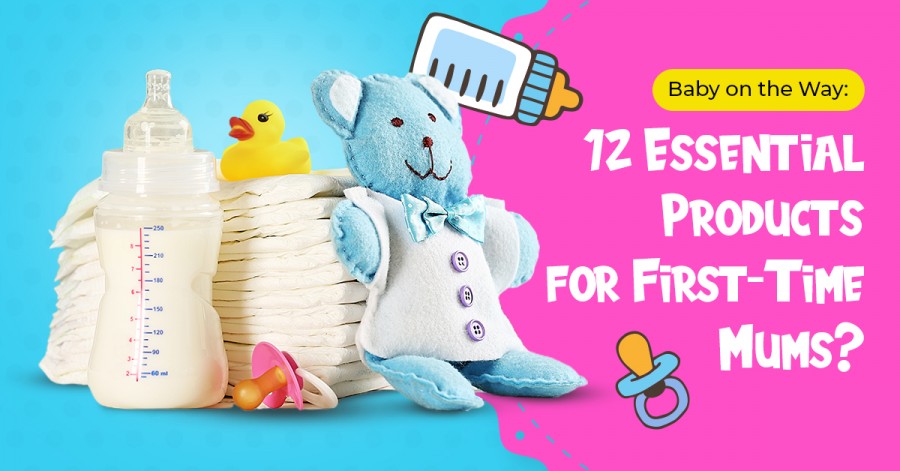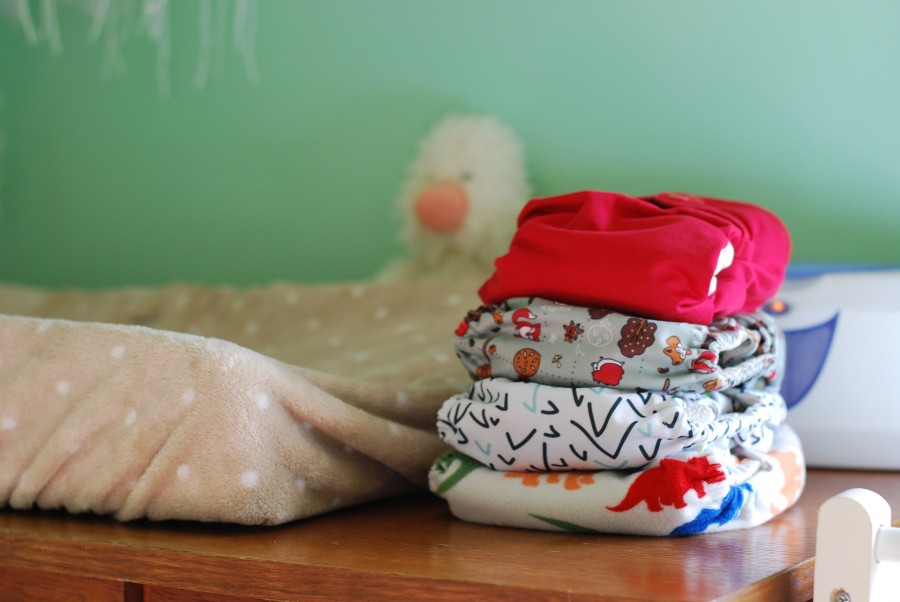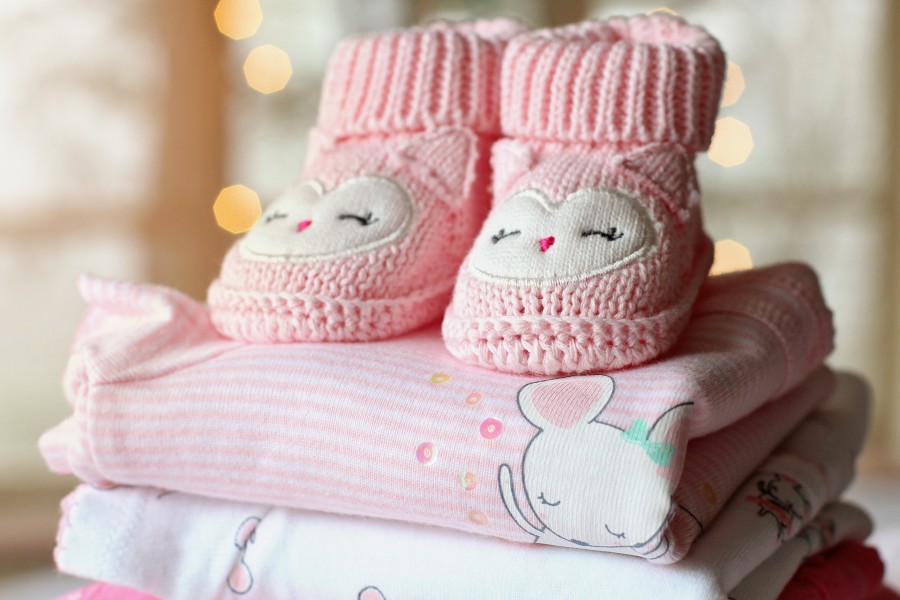Baby on the Way: 12 Essential Products for First-Time Mums
Published 20 March 2023 at 13:45
Tickikids Blog Dubai > After-School Activities > Baby on the Way: 12 Essential Products for First-Time Mums

Becoming a mum can be exciting, but it's nerve-wracking, too — especially if it's your first time. Enjoy more of the excitement and get less of the nerves with a little bit of preparation.
Okay, a lot of preparation. There's nothing quite like thorough preparation to give first-time mums that much-needed boost of self-confidence.
Yes, you can be the best mum. Start by preparing these essentials for your new arrival. You can get these online, and many are available in stores like Nuk baby products.
Diapers
You can choose between disposable and cloth diapers. Disposable diapers are more convenient but more expensive in the long run. Cloth diapers require more effort to wash and dry, but they're more eco- and budget-friendly.
Decide on your diaper type based on your priorities. You can also buy some of each and then decide after you've tried both.
Tip: You'll need to stock up on diapers before your baby arrives because new babies go through a lot in the first few months. Newborns need their diapers changed around 10 times per day, so be sure to have a good supply on hand.

Image Credit: Pexels
Baby Wipes
Baby wipes come in handy when cleaning messes, changing diapers or wiping your baby's face and hands after feedings. Choose fragrance-free wipes that are gentle on your baby's sensitive skin.
Tip: You can use jumbo-sized cotton balls instead of baby wipes for diaper changes. Wet cotton balls are much softer and gentler on the skin than baby wipes. Note that you'll still need baby wipes for everything else.
Baby Clothes
Your baby will need a lot of clothes in the first few months. Seriously, newborns soil their clothes more often.
When choosing baby clothes, go for comfort and practicality. Choose clothes in soft and light fabrics like cotton, muslin, linen, voile, and jersey knit.
Baby clothes must also be easy to put on and remove. This is why wraps and button-ups are typical among newborn baby clothes. Avoid clothes with lots of tiny buttons or complicated snaps and zippers.
Tip: Be sure to have a mix of onesies, sleepers, socks, and hats, as you must dress your baby appropriately for different weather conditions. Also, keep in mind that babies grow quickly, so don't buy too many clothes in the same size.

Image Credit: Pixabay
Breast Pump
If you plan on breastfeeding, invest in a good quality breast pump. It’ll allow you to express milk for your baby when you're away or need to increase your milk supply.
Different types of breast pumps are available, including manual and electric ones, so choose one that suits your needs and budget. Just clean and sterilize them according to the manufacturer's instructions, as improper cleaning can lead to contamination and infection.
Tip: You will also need breast pads and breast milk bags. Breasts leak milk, and breast pads will protect your clothes. Meanwhile, you'll need breast milk bags to store your breast milk.
Be sure to label each bag with the date and time of expression. You can store breastmilk in the freezer for up to six months, and it should still be an excellent source of nutrition for your baby.
Additionally, it's best to store milk in single-serve portions. In the first week, newborns only require one to two ounces of milk every feeding. After the first week, their milk consumption gradually increases.
You can buy 4-ounce bags and store three to four ounces of milk per bag. As your baby starts needing more milk, you can combine two or more four-ounce bags to make one bottle. Later, too, you can buy bigger-capacity bags and store more milk per bag.

Image Credit: Depositphotos
Bottles and Nipples
You need bottles and nipples if you plan to bottle-feed your baby. There are different types of bottles and nipples available, including standard and wide-neck bottles and slow, medium, and fast-flow nipples.
Be sure to choose bottles and nipples appropriate for your baby's age and feeding needs, and clean and sterilise them thoroughly after every use.
Tip: If you plan to combine breastfeeding and bottle feeding, you'll need to teach your baby to latch on to your breast before you allow her to suck on a bottle. To accomplish this, let your baby suckle at your breast at regular intervals (every two to three hours), even if no milk is forthcoming.
If you're feeding your baby formula because of nonexistent or poor milk supply, try cup feeding (use a graduated medicine cup) instead of using a bottle. Do this until your breastmilk supply comes in or increases to sufficient levels.
Bottle Brushes and Sterilisers
Bottle brushes and sterilisers ensure your baby's bottles and nipples are clean and bacteria-free.
Bottle brushes are used to scrub the inside of the bottle and nipple, while sterilisers use steam or boiling water to kill bacteria and germs. You'll need baby bottle cleansers, too.
Baby Bathtub
Bathing your baby can be a fun bonding experience, but understandably, it can be stressful. A good baby bathtub can make bath time easier and safer. Look for one that's easy to clean, has a non-slip surface and can be used in your sink or bathtub.
Tip: Be sure to use warm, not hot, water and never leave your baby unattended in the bathtub. Also, be sure to have all the necessary bathtime essentials, such as baby shampoo, soap and a soft washcloth, on hand and within easy reach before you start bathing your bub.
Diaper Bag
A diaper bag is essential for baby outings. You need one that is spacious, durable and has lots of pockets and compartments to keep your items organised.
Be sure to pack your diaper bag with all the necessary items, such as a changing mat, diapers, wipes, cotton balls, a couple of clothing changes (for you and baby), bottles, breastfeeding supplies, and any other items you and your baby might need while you're out.
.jpg)
Image Credit: Depositphotos
Pacifiers and Teething Toys
It won't be long (typically at the sixth-month mark) before your newborn starts teething. Teething toys can help soothe swollen gums. Pacifiers, meanwhile, can soothe your baby when they're fussy or having trouble sleeping.
Sippy Cups and Transition Cups
You'll need sippy and transition cups as your baby outgrows her bottle. Sippy cups have a spout or straw that allows your baby to drink without spilling, while transition cups have a rim similar to a regular cup.
Solid Feeding Products
At about six months, your baby will start eating solids. You'll need baby spoons, bowls and food containers. You may also want to buy a smoothie and baby food maker for food prep and, for meal portioning and storage, a freezer tray with lid and stackable cubes.
Tip: Choose BPA-free and dishwasher-safe tableware, storage bowls and utensils. You should also pick spoons and forks that are easy for your baby to hold and use.
Be sure to introduce new foods one at a time and watch for any signs of allergic reactions or choking. Always supervise your baby during mealtimes.
Oral Care Products
Oral care is essential for your baby's overall health, even before she has teeth. First, you'll need a finger brush for gum cleaning. Later, you can transition to an infant toothbrush. In either case, you'll need an age-appropriate teeth cleanser.
Tip: Brush your baby's teeth twice daily and schedule regular dental check-ups.
Ready, Set, Go, Mum!
Becoming a first-time mum is exciting and rewarding, but it can also be overwhelming.
All you can do is prepare and hope for the best. With these essential products on hand, you should be more than ready to take on your new role.
Just remember: Take it slow, take it one day at a time, and ask for help when needed.
Best of luck to you and your growing family!